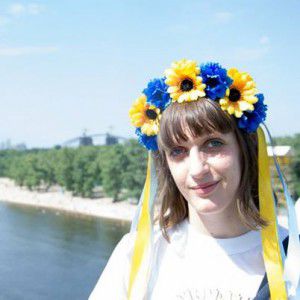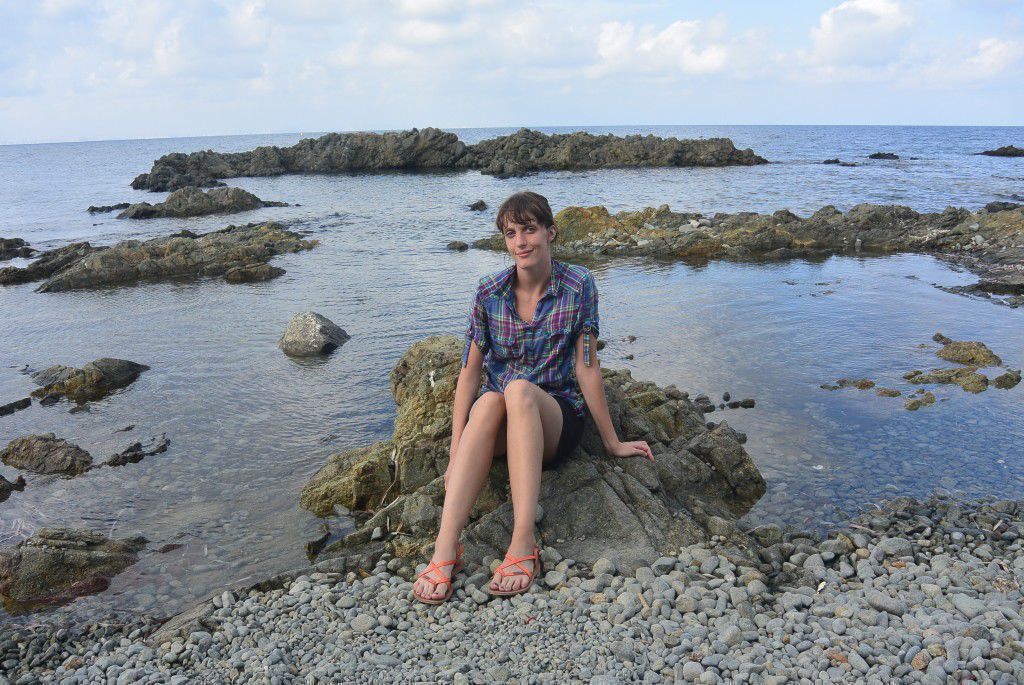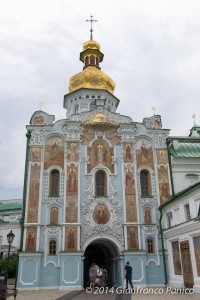Travels with a language geek
After almost three years as an (unofficial, for the last year) member of the EuroTalk family, I’ve finally decided that it’s time for me to move on and take my passion for languages and cultures on the road. So, I’m hanging up my localisation project manager hat (not literally of course – there’s no designated hat for that) and setting off on a trip across Europe.
 I have to say that at the moment my plans are pretty vague. My partner has a car, so we’re packing our stuff in the boot, getting in and heading off for a mega road trip across Europe: the Netherlands, Germany, the Czech Republic, Poland and Ukraine, for a start. Then the idea is to end up in Lviv, Western Ukraine and stick around there for a while until we decide the next phase of our plan. There’s no particular time-scale on any of this – we’re simply going to drive from city to city, visit a few friends, see some sights and move on when we feel like it. The only limit on how much time we can spend driving from place to place is money, and how long we can stand spending that much time together. When we finally get to Lviv, we’re planning to rent a flat there for a while and live the digital nomad lifestyle, experiencing life in Ukraine and using Lviv as a base from which to explore other parts of Eastern Europe.
I have to say that at the moment my plans are pretty vague. My partner has a car, so we’re packing our stuff in the boot, getting in and heading off for a mega road trip across Europe: the Netherlands, Germany, the Czech Republic, Poland and Ukraine, for a start. Then the idea is to end up in Lviv, Western Ukraine and stick around there for a while until we decide the next phase of our plan. There’s no particular time-scale on any of this – we’re simply going to drive from city to city, visit a few friends, see some sights and move on when we feel like it. The only limit on how much time we can spend driving from place to place is money, and how long we can stand spending that much time together. When we finally get to Lviv, we’re planning to rent a flat there for a while and live the digital nomad lifestyle, experiencing life in Ukraine and using Lviv as a base from which to explore other parts of Eastern Europe.
You might wonder why of all places I’ve chosen to go and live in Ukraine. Well, I wish I could give you a really great and well-thought out reason, but the simple fact is: it’s really cheap to live there right now! According to NomadList.com, you can live in Lviv on $400 a month. That’s around £250 – less than half of what I pay each month in rent here in London. Which is pretty appealing to someone who is trying to live as a digital nomad for the foreseeable future. For those of you who don’t spend as much time as I do stalking travel bloggers on Twitter, a digital nomad is someone who lives abroad and/or travels indefinitely, funding themselves by working remotely via wifi and their laptop. A few intrepid travellers out there have managed to fund themselves all the way around the world just by blogging, writing or completing other online work. In my case I’ll be translating to earn my daily bread, whilst pretending to be a super-cool international travel blogger the rest of the time. It’s all about wearing expensive sunglasses and taking selfies, I’m assured.
But taking advantage of 30p beers isn’t the only reason I’m excited to experience life in Eastern Europe. As a language geek, of course I can’t wait to try my hand at picking up Russian and bits of other local languages: Polish, Ukrainian and Czech sounds like a start! Not to mention finding out as much as I can about the culture, lifestyle and places of this amazing region. Oh, and I’ll be bombarding everyone with updates and photos via my brand-new blog: postcardsfromukraine.com, which is already in the top ten blogs about being a digital nomad in Ukraine written by a Brit and an Italian. So, if you’re curious, feel free to catch up with us on Twitter @ukrpostcards or the Postcards from Ukraine Facebook page, and I promise to keep EuroTalk updated on my language-learning goals too.
Alex
10 reasons to visit… Kiev
A couple of months ago, I spent a few days in the Ukrainian city of Kiev, which turned out to be a fascinating and occasionally surprising place to visit. So here, in no particular order, are my top ten reasons to go and check it out for yourself.
1. It’s so cheap!
Probably one of the highlights of spending five days in Kiev was figuring out how much we’d just paid for each meal, trip etc… After eating a ridiculously large lunch at the fantastic Vagon, including drinks, appetisers and dessert, we realised it only cost £15 for two people. And even better, you can ride the Metro for about 10p (regardless of distance), take buses all over the city for 10p and ride the Funicular for about 20p. Taxis tend to charge you a flat, tourist rate of 100 hyrynas, which is still only around £5 to get from the airport to the city.
2. Chill out on the beach
Yep, there’s a beach. If you cross the bridge to the other side of the river, there’s a proper sandy beach where locals go to soak up the (surprisingly hot) sun. You can abseil from the top of the hill down to the beach, bungee jump from the bridge, swim in the river, or just sunbathe and eat ice creams that cost you less than 50p.

3. Crazy nightlife
Ukrainians seem to like to party, with lots of booze and dancing! Coyote Ugly is a favourite spot where you can smoke shisha, drink vodka shots, dance on the bar, and still come away with change from £20. However, be warned that if you ask for water in a British accent, you’re likely to come away with yet another (unwanted) shot of vodka! Apparently Arena City (quite central) is also worth a look with several different bars and outdoor seating areas.
4. Maidan square
Maidan is the city’s central square and home to some of the most recognisable statues and monuments. During our visit, it was also home to numerous barricades – many built from rubble, rubbish, tyres and whatever else was to hand. There were also many burned-out cars and even buildings which had been burned out by the police during the recent conflict. People had even pulled up the cobblestones from the ground and used them to throw during the riots. Here and in Khreschatik street you’ll also find lots of memorials to people who died during the revolution.
5. Take a trip to the world’s most famous nuclear disaster site
Admittedly this might not be on every tourist’s to-do list, but it certainly was on mine! You can take a day-trip to Chernobyl for around £100 per person, which includes an extremely well-organised bus trip to the town, lunch, fully-guided tour by really excellent guides and the amazing opportunity to take pictures by the reactor and in the deserted town of Pripyat, with its famous funfair, which was never opened to the citizens of the town before it was evacuated in 1986.

6. Brunch at Koritsa
I don’t know if this place is particularly famous, but it should be, for its awesome brunches with eggs, pancakes, cake and whatever else, plus juice and coffee for less than £15 for two people. Also try Vagon for its fantastic tagines, Varenichnaya for Ukrainian specialities (Vareniky are ravioli-esque dumplings) or Puzata Hata, which is a cafeteria-style chain that sells Ukrainian food by weight.
7. Take the Funicular up the hill
If you read Liz’s post a few months ago about her trip to Naples, you’ll remember she had a trip up the hill on the ‘funicolare’. Well this is pretty much the same thing… A carriage which takes you up the side of the hill for the eye-watering price of 20p. When you’re at the top, you can enjoy an amazing view of the city and river, as well as the park (albeit with very spiky grass) and one of the more surreal monuments – the archway representing friendship between Russia and Ukraine… The less said about that the better, maybe. Try a Kvas which is a really, really strange drink – something like a very sweet, non-alcoholic beer.
8. Beserabka market
This is a covered market just off Khreshatyk (the main street) and is a great place to wander around and see a range of really great quality fruit, caviar, salami, cheese and lard (which is strangely popular here…). Just be aware that the vendors will do the hard-sell on you even if you don’t speak Russian. We walked through with no intention of buying anything and came away with a jar of caviar and a block of cheese without even realising what was happening!
9. Pechersk Lavra
This landmark translates as something like the Monastery of the Caves, and is a particularly unique site, where you can spend at least a whole afternoon. It’s a complex of various different churches, as well as the crypts below where you can see the mummified bodies of saints by candlelight. The architecture here is particularly spectacular, with a myriad of golden domes, not to mention a great view of the city.
10. Sightseeing all the monuments around the city
There are loads of different statues and buildings around the city that are worth seeing. Climb the hill to see the St Andrew Church (and an amazing view), visit the St Sophia Cathedral (one of the Seven Wonders of Ukraine, apparently) and several other cathedrals, churches and more…
Don’t forget to download our free app, uTalk, and learn the basics in Russian or Ukrainian (or both!) before you leave – not many people in Kiev speak English, so you may find knowing a few words can make a huge difference.
And if anyone has any other tips or reasons to visit Kiev, please let us know in the comments!
Alex (with thanks to Gianfranco for the photos)
Christmas celebrations!
Today is our last day in the office before the Christmas break. It seems like it’s crept up on us this year but now with just two days to go, we’re starting to look forward to our various celebrations. I asked a few people how they’ll be celebrating this year.
Lotta:
My mother is Finnish so we (my three siblings, partners, niece and nephew) have our Christmas meal and presents on Christmas Eve at her house, which is always beautifully decorated Scandinavian style (no tinsel!). That means Christmas Day is like Boxing Day where we just chill out, watch TV and have left overs.
On Boxing Day (26th December) I will cook at my house and have some of my husband’s cousins over, who are from Albania and don’t really celebrate Christmas, but like to get together – and will hopefully like my cooking!
Katie:
I go to my parents, who live up north, and because they live in the middle of nowhere, it’s a nice, quiet setting to celebrate. On Christmas Eve, I help prepare the veggies and set the table so all my Dad has to do is cook the dinner on the day! We exchange presents at midnight and on Christmas Day, we have dinner around 2pm before settling into playing some mahjong with the family.
Zsolt:
We usually buy a Christmas tree, then we spend about two hours in squeezing the Christmas tree into the previous year’s Christmas tree stand which is usually much smaller than the current one. After realising how many things we haven’t bought for the Christmas dinner, we start to decorate the tree and then get a surprise when we see that the cheap Christmas tree lights that we bought in the market for £0.99 don’t work.
When we have enough stress, we start cooking and feel happy because we have a lot of time until our guests arrive, then suddenly someone rings the door bell. Our uninvited guests enter the flat and start consuming half of the food we planned to serve for the dinner.
Hanna:
I’ll be celebrating in Finland by eating too much Christmas ham, going to a Christmas concert, and listening to the Declaration of Christmas Peace. I wanted to go skiing but there’s no snow 🙁
Sheila:
I am trying to make a Trinidadian rum cake for Christmas this year… this is the first time I’m trying to make it – it’s an old family recipe. When I was younger my Gran used to send one in the post every Christmas. Preparations started in August! Step 1 is soaking lots of fruit in rum and cherry brandy for a few months…
Peter:
In the Ukraine we celebrate Christmas on 7th January. Children go from house to house and when people answer the door the children throw a handful of grain then sing a song in exchange for sweets or money (sort of a combination of Halloween and carol singing).
We’d love to hear how you plan to celebrate the holiday. Have a lovely Christmas and New Year everyone. We’ll be back in 2012!
Liz



